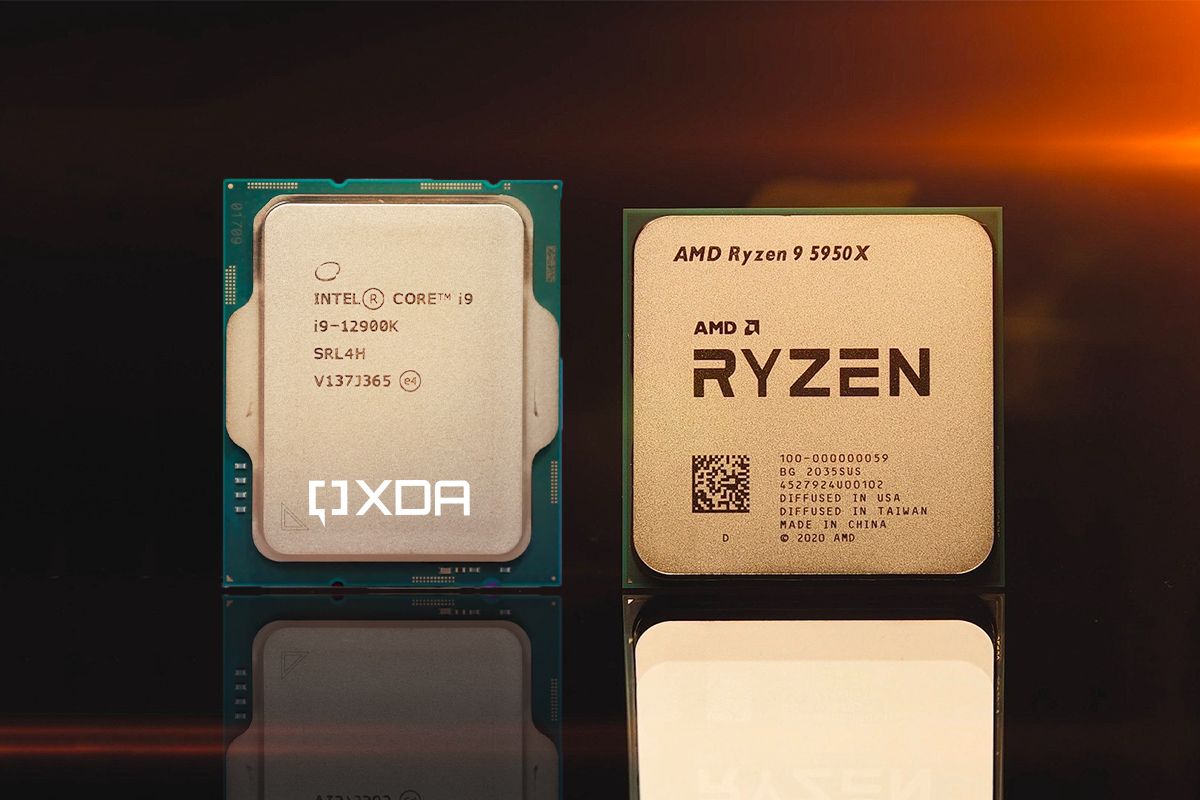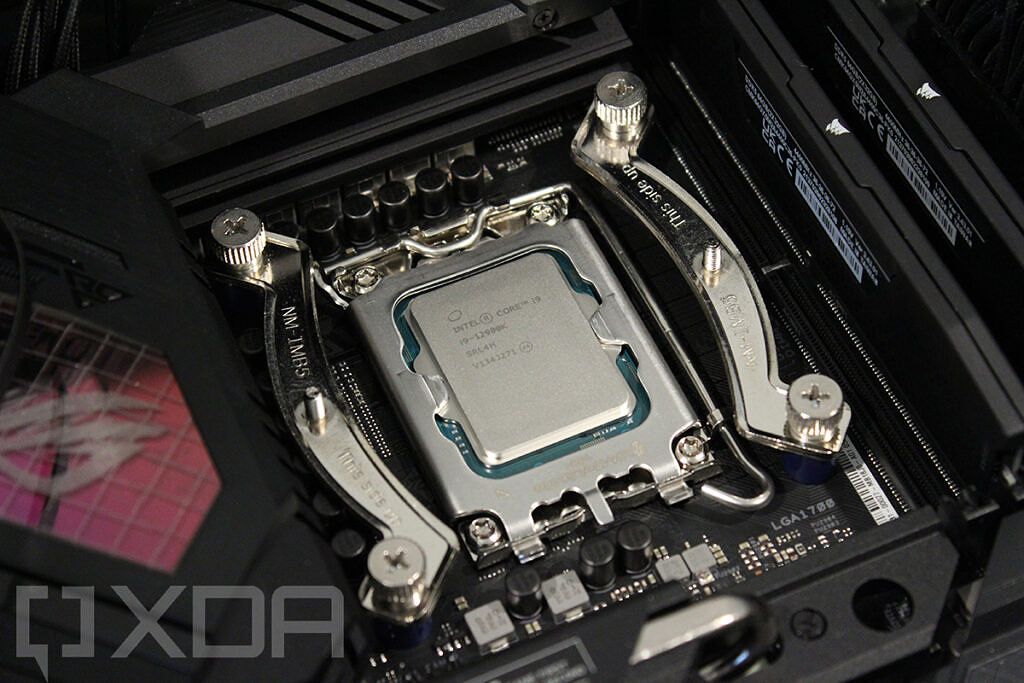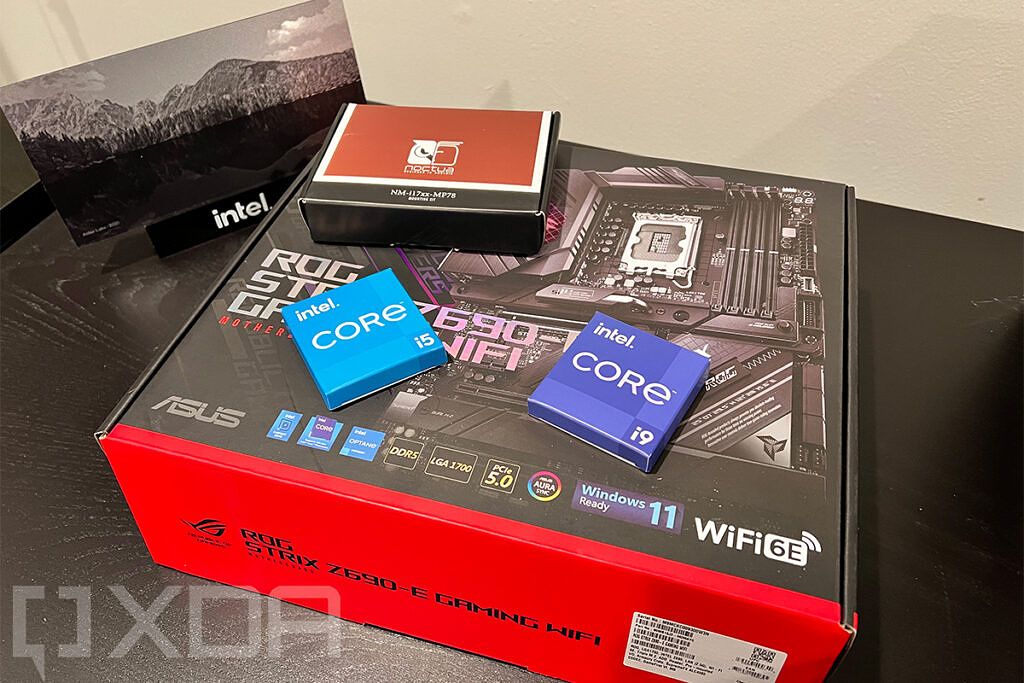'Intel vs AMD' is a never-ending debate that tends to heat up every time there's a new processor on the market. With the launch of Intel's new Alder Lake CPUs, it's now time to see whether we have a clear winner in the mainstream desktop PC market. In this article, we'll revisit the Intel Core i9 vs AMD Ryzen 9 rivalry to see which one ends up at the top of the performance chart. AMD's been stomping the CPU space with some great processors over the years, absolutely dominating our list of the best CPUs on the market. So, has Intel managed to do enough damage to AMD with its new CPUs? Let's take a detailed look at the Intel Core i9-12900K vs AMD Ryzen 9 5950X processor comparison to see what the high-end mainstream market looks like in 2021.
Navigate this article:
Intel Core i9-12900K vs AMD Ryzen 9 5950X: Specifications
Before we begin the comparison, we think it's a good idea to get an overview of each processor to see what they look like on paper:
|
Specification |
Intel Core i9-12900K |
AMD Ryzen 9 5950X |
|---|---|---|
|
CPU Socket |
Intel LGA 1700 |
AMD AM4 |
|
Cores |
16 (8P + 8E) |
16 |
|
Threads |
24 |
32 |
|
Lithography |
Intel 7 (10nm) |
TSMC 7nm FinFET |
|
Base Frequency |
3.2GHz (P-core) | 2.4GHz (E-core) |
3.4GHz |
|
Boost Frequency |
5.1GHz (P-core) | 3.9GHz (E-core)Turbo Boost Max 3.0 - 5.2GHz |
4.9GHz |
|
Unlocked for overclocking? |
Yes |
Yes |
|
L3 Cache |
30MB |
64MB |
|
Default TDP |
125W |
105W |
|
Max. Operating Temperature (Tjmax) |
100°C |
90°C |
|
Memory Support |
DDR4-3200 | DDR5-4800Up to 128GB |
DDR4-3200Up to 128GB |
|
Integrated Graphics |
Intel UHD 770 |
None |
Intel's new Core i9-12900K desktop CPU features a hybrid big.little design. It's similar to those found in ARM CPUs. We're looking at eight performance cores (P-cores) and eight efficiency cores (E-cores). Together, the Intel Core i9-12900K is good for 16-cores and 24-threads with only the P-cores featuring simultaneous multithreading (SMT). This is significantly different from AMD's flagship Ryzen 9 5950X's traditional 16-core, 32-thread design. Essentially, all 16-cores of the 5950X are performance cores featuring SMT. Intel's hybrid architecture is the reason why the 12900K has fewer threads compared to the 5950X that you see above in the specs sheet.
Intel Core i9-12900K vs AMD Ryzen 9 5950X: Performance
Intel moving forward with the new 'Intel 7' lithography for the new Alder Lake chips. It's safe to say the 11th-gen Rocket Lake chips were the last call for its 14nm process. The new hybrid architecture allows the 12900K to smartly distribute different workloads between the high-performance P-cores and energy-efficient E-cores. Intel's Thread Director smartly takes care of all this by scheduling tasks in Windows 11 operating system. If you're playing video games on your PC while talking to your friends on Discord at the same time, for instance, then the game's load will be handled by the P-cores, while the Discord will be taken care of by the E-cores. This is just one example of how Alder Lake CPUs will intelligently schedule the tasks to offer better overall performance.
Intel's Core i9-12900K was able to beat Ryzen 9 5950X in almost all the content creation workloads. The performance difference ended up being much higher in some cases, while it was just a near blowout in others. But either way, the Core i9-12900K managed to beat the Ryzen 9 5950X in almost all the workloads save for a few lightly-threaded tasks like the 7-Zip benchmark. Windows 11 also plays a huge role in boosting the overall performance of the Alder Lake CPUs. That's because Intel's new Thread Director is only available on the new OS. We suggest you check out our Intel Core i9-12900K review to check out different performance tests we managed to run for our review.
Things are quite close between the two processors when it comes to gaming performance too. To be fair, both CPUs are a bit overkill for gaming, if you ask us. However, the Ryzen 9 5950X managed to hold its own even while going against Alder Lake's ostensible platform advantage. The Core i9-12900K may end up performing better than the AMD counterpart in most cases, but the difference is well under the margin of error.
It's hard not to talk about the power consumption and thermals while discussing monstrous CPUs like the 12900K. The new Alder Lake Core i9 is the more powerful CPU here and it goes without saying that it draws more power. The base power draw is about 20W higher than, while the max turbo draw is over 100W. Naturally, this results in more thermal output in the case of 12900K. This is also why the Intel Core i9-12900K has a higher operating temperature too. We're looking at a TJmax value of 100°C and 90°C respectively for the Core i9-12900K and the Ryzen 9 5950X.
The higher power draw and the subsequent thermal output doesn't necessarily make the 12900K a bad choice. It's merely another factor to consider while making a purchase decision. It's not something that'll keep you from pushing the CPU to its limits to get the best performance. It just means you'll need a beefier power supply unit and a solid cooling solution. This is also true for the 5950X, so it's best to save some money for these components too.
Intel Core i9-12900K vs AMD Ryzen 9 5950X: Platforms and Compatibility
Intel's new Alder Lake chips demand a new chipset and a socket on the motherboard to run. This time, it's the LGA 1700 and the Z690 chipset. Z690 is the first and the only supported chipset for the Alder Lake chips on the market for now. This means all Alder Lake-supported motherboards will have the Z690 chips and the new LGA 1700 socket. The key difference between Z590 and the Z690 platforms includes more PCI Express (PCIe) lanes. We're looking at an upgrade from PCIe 4.0 to PCIe 5.0. The new PCIe 5.0 isn't entirely useful, yet. Almost all the PCIe peripherals are still using PCIe 4.0 including the best graphics cards and the best SSDs. That being said, this gives you an opportunity to build a truly futureproof machine.
The new boards also bring support for DDR5 RAM along with XMP 3.0, which is Intel's Extreme Memory Profiler service for overclocking. You also get Dynamic Memory Boost Technology to ramp memory speeds up. All these features are great for overclockers, although average users may never find the need for them. DDR5 memory modules, as you'd expect, are very capable and more powerful than the standard DDR4 RAM kits. But it's worth pointing out that you may have a hard time finding them in stock. Even the ones that are available are probably going to cost you a lot of money.
AMD's Ryzen 9 5950X, on the other hand, is compatible with AMD's AM4 socket. It drops right into one of the existing motherboards with either X570, B550, or B450 chipset. You can check out our collection of the best AMD motherboards to find out all the available options that are worth buying right now. The Ryzen 9 5950X not only has a huge pool of motherboards to choose from, but it also keeps the platform entry cost low. You don't get support for PCIe 5.0 or DDR5 RAM with the Ryzen chip. Those are coming with AMD's AM5 platform, so you'll still be able to dish out a relatively inexpensive build with these AM4 supported chips. If you don't mind dropping the extra money on the new platforms-specific features for futureproofing, then the Intel Core i9-12900K is the winner here. But if you want to save and use that money on, say, a better GPU, then AMD wins this one.
Pricing and Availability
Intel's new Core i9-12900K has a suggested price of $589, whereas the AMD Ryzen 9 5950X has a suggested price of $799. You're bound to see these chips being sold for slightly different prices depending on the stock. You might even get lucky to grab them for less than the MSRP. That being said, we're looking at over a $200 difference at any given point. Even if you consider the frequent discounts, the Intel Core i9-12900K is much cheaper than the Ryzen counterpart. But there's more to it than just the processor cost here in this case. As we mentioned in our Intel Core i9-12900K review, the platform entry cost is quite high right now.
Unlike the Ryzen 9 5950X processor that drops right into the existing motherboard with an AM4 socket, you'll need a new Z690 chipset-based motherboard to use the new Intel chips. Add the cost of a new high-performance DDR5 RAM kit to it and you're looking at a significant bump in price. A new Intel Alder Lake build is going to burn a huge hole in your pocket even if you avoid the new DDR5 memory modules and pick up a pair of the best DDR4 memory kit instead. Not to mention, you'll also need an upgraded CPU cooler for LGA 1700 socket to maintain the thermal output for the new Core i9-12900K.
Intel Core i9-12900K vs AMD Ryzen 9 5950X: Final Thoughts
All things considered, it's safe to say that the Intel Core i9-12900K is the best high-performance mainstream CPU on the market right now. Not only is it a significant improvement over the 11th-generation Core i9-11900K, but it even topples the Ryzen 9 5950X to remove the big red glow hanging over its head from the house of AMD. The Intel Core i0-12900K is just as good as the Ryzen 9 5950X -- or even better -- in both single-threaded as well as multi-threaded applications. This is a big deal considering how AMD CPUs have been trouncing the Intel chips for the past few years. That being said, it's not all rosy for the Alder Lake champ.
Intel's new Core i9-12900K is a power-hungry CPU. It's more power-efficient than the Rocket Lake chip, but it still lags behind the Ryzen chip. It outperforms the said chip, but it does so by consuming more power, thereby running significantly hotter too. We think the main reason for this is TSMC's 7nm manufacturing process vs Intel's 10nm. The Core i9-12900K is a beast of a CPU, but there's still work to be done. Even if it isn't necessarily a deal-breaker, we think it's still something that's worth pointing out when you're pitting them against each other. This is one of the reasons why we think the AMD Ryzen 5950X is still a perfectly viable option on the market for those considering a high-performance PC build. Add relatively low-platform entry cost to that, and the AMD Ryzen 9 5950X quickly makes the Intel Core i9-12900K a little less desirable.
Intel has still done a commendable job with the new Alder Lake chips so far. There's no denying that we're now seeing some real competition in the desktop CPU space. It's a much-needed shift in the market after getting accustomed to easy wins for AMD. After all, we all love a good fight between Intel and AMD as they continue the rivalry in the PC market, right? You can't go wrong with either of these chips, but we're leaning towards the Core i9-12900K as our pick for the best high-performance CPU right now. If you're going to spend big money on a new high-performance rig right now, then it makes more sense to buy the Core i9-12900K to get the absolute best CPU, leaving no room for compromises.
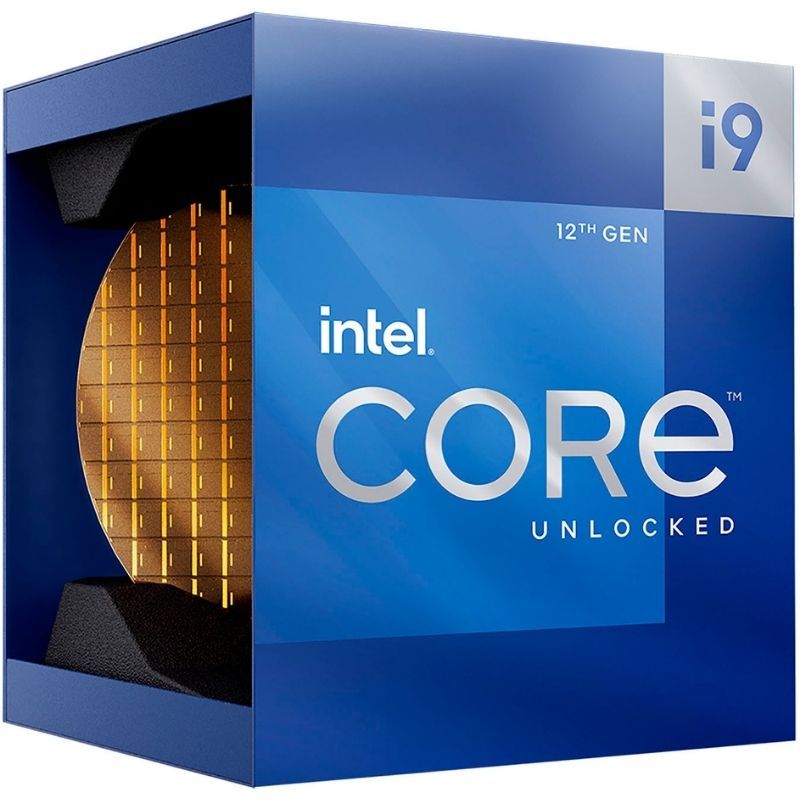
12th Gen Intel Core i9-12900K
Intel has snatched its way to the top of the performance charts with the Core i9-12900K. It's the flagship Alder Lake chip with plenty of cores and threads for even the most demanding tasks.
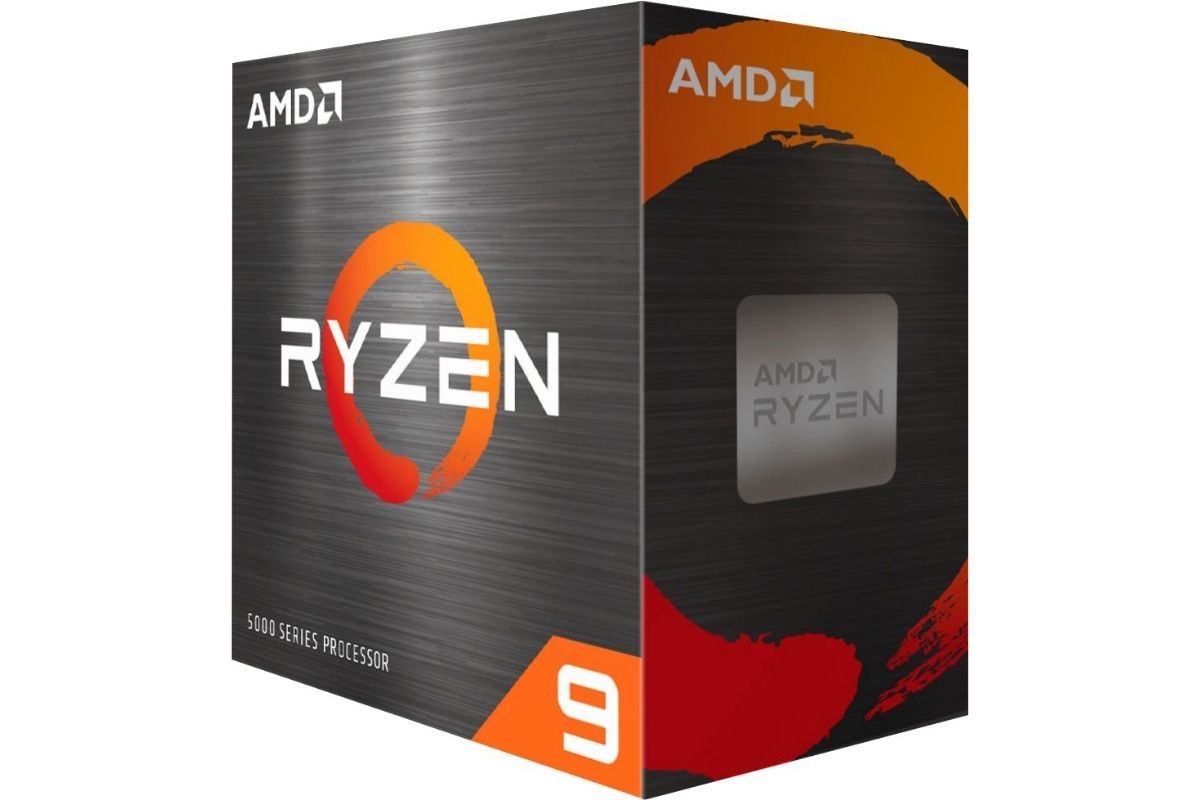
AMD Ryzen 9 5950X
The AMD Ryzen 5950X is a high-performance mainstream desktop CPU that's still a perfectly viable alternative for those looking to build a powerful rig for gaming or content creation.

